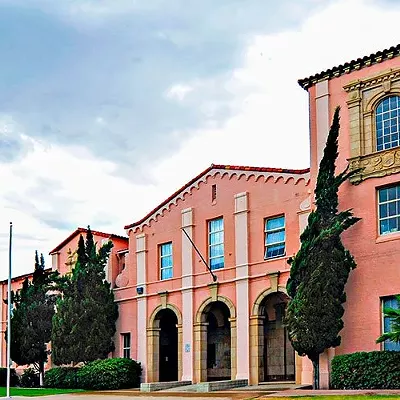A U.S. Department of Justice motion asking the federal court to allow a Tucson magistrate to monitor the Tucson Unified School District's ongoing desegregation process rather than the court-appointed special master was recently denied by Ninth District Court Judge David C. Bury.
Last month the Tucson Weekly published a guest commentary by the last members of TUSD's Independent Citizens' Committee (See "TUSD must maintain current desegregation monitoring model," Nov. 7, 2013). This committee was first charged in 1978 with monitoring the district's process in complying with the first desegregation order of the almost 40-year-old deseg case.
From the committee's commentary, "After years of witnessing TUSD disregard repeated findings of noncompliance, the ICC became convinced that a direct monitoring line to the court would promote compliance with the desegregation order. TUSD strongly objected to this. The ICC also understood that public education expertise is critical as an integral part of any monitoring body appointed by the court."
The court appointment of desegregation expert Willis Hawley as special master for the TUSD desegregation unitary status plan gave committee members and other deseg supporters hope that this time round monitoring the deseg plan would be done correctly and not allow the district to, well, get around or out of deseg compliance.
And evidently Bury agreed with the last ICC committee's commentary, because in his latest finding, despite DOJ's motion and the fact that TUSD formally joined the motion, Hawley stays on board as the community's link to the court.
On Oct. 28, 2013, Hawley wrote to Bury in response to the DOJ motion, first pointing out two consequences of the motion—to establish a process to record actions by the district and plaintiffs related to deseg implementation and to change and diminish the influence on and monitoring of the deseg plan by the plaintiffs and special mater.
"The processes proposed by the DOJ add significant activities to the work load of the parties and the special master while simultaneously diminishing their substantive responsibilities. One way to keep people from doing important and good work is to have them do unnecessary work," Hawley wrote.
In reaction, Hawley proposed another system for reporting to the court that he said could help the district and the plaintiffs go from monitoring and reporting to finally focusing on outcomes and evidence. And he asserted that the DOJ motion, is "a continuing set of readily documentable efforts by the district and, to a lesser extent, the DOJ, to limit the role of the plaintiffs and special master to make meaningful contributions to the implementation of the (deseg plan)."
Bury's order, he reminds the plaintiffs—the Fishers, the Mendozas, the DOJ and TUSD—that they agreed the post unitary status plan approved in 2009 was inadequate and that the court was persuaded to appoint an expert to "guide the development and implementation of a desegregation plan by which the district would be assured to attain unitary status within a specified time frame." And that's how TUSD and the other plaintiffs have Hawley.
In the DOJ motion, it was asked that a magistrate judge be assigned to hold monthly compliance calls and quarterly status conference. And while he denied the use of a local magistrate, he also told the DOJ that the procedures they suggested would increase "the confrontational nature of this case and impede what has been a difficult, but collaborative process to move the district towards attaining unitary status."
Bury also adopted Hawley's reporting process outlined in his October response to the court, as well as its timelines and plans of action.
Addressing the DOJ's request for a magistrate wasn't the only order issued by Bury on Dec. 2. The other addressing an objection filed by the Fisher plaintiffs, representing TUSD African-American students, to parts of the student discipline plan, specifically suspension and expulsion.
A history outlined in Bury's recent order, "(TUSD) failed in both regards in respect to student discipline policies and procedures. These failures were especially discouraging in the area of student discipline policies and procedures because there was some progress made initially ... but then progress languished for the remainder of the 20 some years the 1978 settlement ..."
In this order, Bury says he's agreeing with the special master, that the Fishers concerns can be addressed in yet to be developed regulations implemented by teachers and administrators. Part of that means training teachers and administrators, and monitored by Hawley. Hawley told Bury that Fisher concerns can be revisited at the end of the academic year, and he intends to file a supplement at that time.











